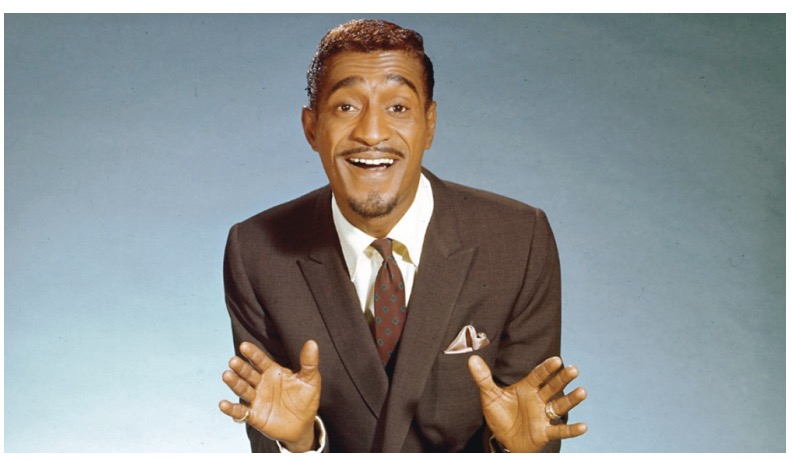The biopic about Sammy Davis, Jr. now has been set up at Paramount Pictures, where producer Lorenzo di Bonaventura has his overall deal. The project is on the development fast track, soon to be hiring a writer and a director to make the feature film about the dancer-singer-actor-musician to becoming a reality.
The movie will be based in large part on the 1965 memoir Yes I Can: The Story of Sammy Davis, Jr. that he penned with Jane and Burt Boyar.
Davis’ heirs are joining a producing team led by Lionel Richie, di Bonaventura and Mike Menchel. The latter two most recently joined forces for Only the Brave, the feature about the 19 firefighting heroes who died during the 2013 Yarnell Hill fire in Arizona.
Richie was the key to getting all the rights deals done to be able to bring Davis’ story to the masses. “I cannot tell you how excited I am about the signing of the Sammy Davis Jr. project with Paramount,” said Richie. “I knew and loved Sammy dearly.”
Davis’ life could be made into multiple movies as he (and singer Billy Eckstine) were among the first entertainers to truly cross the white barrier in a racially charged America. Thanks in large part to his champion Frank Sinatra, Davis — who even as a child in Vaudeville was entertaining with his incredible tap-dancing repertoire – truly was able to thrive.
He was born in Harlem and performed for troops during World War II. By the 1950s, Davis was recording albums and performing on Broadway. But it was when he joined Sinatra in what was known as The Rat Pack — along with Dean Martin, Peter Lawford and Joey Bishop — that he began to
become a major celebrity.
The guys ruled the Las Vegas Strip, often staying at The Sands. He then started appearing in 1960s Rat Pack films such as Ocean’s 11, Sergeants 3 and Robin and the 7 Hoods.
It was his love affairs with white actresses such as Kim Novak, however, that threw him into private and public controversies. Faced with a death threat from Columbia Pictures’ Harry Cohn after he found out that Davis and Novak were an item, the singer was forced to marry a black woman as a beard.
Then came his love affair with the Swedish actress May Britt, which really raised eyebrows during what was a time in America when interracial marriages were banned in many states. But the two were deeply in love, and Davis proudly announced the engagement to the world. Sinatra was concerned and said not to marry Britt, but the two lovebirds were determined. It was a marriage that lasted eight years and produced three children.
During a time in America when there were still segregated water fountains and black performers had to stay in black hotels separate from whites-only hotels (like the Frontier and the Desert Inn in Vegas and the South), Davis — and others including Eckstine, Lena Horne, Count Basie, Billie Holiday, Bobby Tucker, The Mills Brothers, etc. — continued to push through the bigotry. Davis later threw down the gauntlet and boldly refused to work for companies that segregated.
The marriage to Britt was not without backlash from the black community as well. Davis, however, continued to push for civil rights even though some in the black community saw him as a sellout; even though he was scared, he marched with Dr. Martin Luther King Jr. from Selma to Montgomery in 1965. Davis broke down many barriers; played for the Queen of England and even was given his own network show in 1966 — unheard of for a black man at the time.
In 1971, Davis enjoyed a major pop hit with “The Candy Man,“ which was written by others specifically for the film Willy Wonka and the Chocolate Factory. That song held onto the No. 1 spot for three weeks.
Davis, who was tirelessly devoted to his work, was almost killed in a 1954 car crash in San Bernardino. That’s how he lost his left eye. During his recovery, he began studying Judaism. He converted in 1961. So did Britt.
Controversy hit again when he backed (and hugged) then-candidate Richard Nixon in 1972. But Sinatra loved the politician, too — eventually even helping out VP Spiro Agnew financially with his legal woes behind the scenes). Davis later got involved with porn star Linda Lovelace and fell in with even more strange bedfellows of drugs and alcohol.
It’s a big responsibility to get the biopic right, so producers have been working diligently to bring the hard-working, stereotype-busting and trailblazing artist to the big screen. The pic will follow him from Vaudeville with his dad and uncle in the Will Mastin Trio to the integrated infantry with Southern whites in WWII to his big break in the short film Sweet and Low in 1947 and his chance meeting with Sinatra.
In his 64 years, Davis made some lifelong friends and influenced the careers of many artists. One of those was Richie, who is passionate about the feature project. “He was so kind to me at the beginning of my career and gave me advice that helped me become the artist that I am today,” he said. “I am so happy for his kids that we can bring his story to the screen.” So are we.
Source: Deadline




